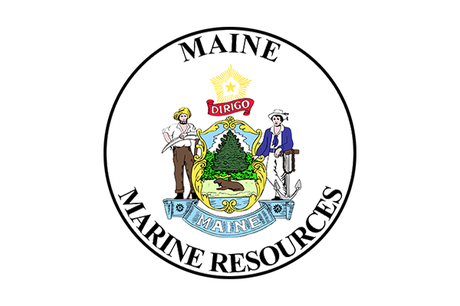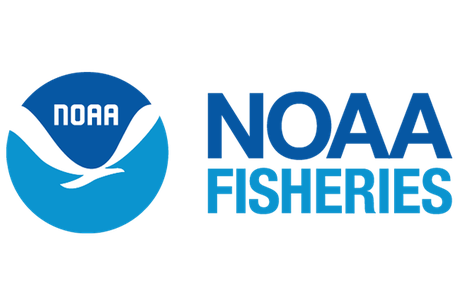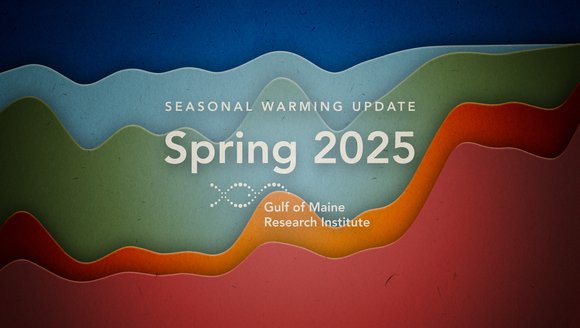Developing an Integrated Ecosystem Assessment
Monitoring ecosystem change to support fisheries decision-making in Maine's coastal waters.
Warming in Maine’s coastal waters is reshaping the ecosystem and impacting key fishery resources and communities. Information on the state of the ecosystem will improve our ability to make informed decisions in the face of climate change and support a holistic, ecosystem-based approach to managing Maine’s marine resources. The goal of this study is to develop an integrated ecosystem assessment (IEA) focused on characterizing the status and trends of the fishery ecosystem in Maine’s coastal waters. This assessment will support an ecosystem-based approach to fisheries management and climate adaptation planning efforts in Maine.
Project Goals:
- Work collaboratively with stakeholders to define information needs and identify key ecosystem features and indicators that will support fisheries decision-making.
- Develop a suite of indicators for monitoring change in the fishery ecosystem.
- Create an end user interface for visualizing the IEA and a workflow that will support maintenance of the IEA into the future.
Over the last 30 years, the Gulf of Maine's waters have warmed at a rate more than three times the global average. The impact of warming on marine resources in this region is apparent through shifts in species distribution (Pinsky et al. 2013, 2018, Kleisner et al. 2017, Allyn et al. 2020) and productivity changes in economically and culturally important stocks (Hare et al. 2010, Pershing et al. 2015, Le Bris et al. 2018). These diverse and interacting influences are reshaping the ecosystem of Maine’s coastal waters in ways that are impacting key resources and will affect all sectors of Maine’s Blue Economy, including wild fisheries, aquaculture, and tourism. Coastal communities in Maine have strong social and cultural ties to marine fisheries and many will be highly vulnerable to projected changes in fishery resources.
We needed information on the state of the ecosystem to improve our ability to make informed decisions in the face of climate change and to support a holistic, ecosystem-based approach to managing marine resources in the coastal waters of Maine.
Integrated ecosystem assessments (IEAs) provide an overview of the status, trends, and possible future conditions of key components of the ecosystem. IEAs facilitate the translation of ocean data to information and knowledge and have the potential to support ocean resource decision-making, business planning, and community adaptation efforts in the face of a rapidly changing ocean. A core feature of IEAs is the tracking of ecosystem indicators that enable characterization of ecosystem change relative to some baseline or target level. Long-term ecosystem and resource monitoring datasets (e.g., bottom trawl surveys) are essential for characterizing the relationships between the ocean environment, important marine resources, and the communities they support. These assessments are typically developed at the regional scale (e.g., State of the Ecosystem: New England, NEFSC 2020b) and designed to provide a system-wide context for resource managers and stakeholders supporting an ecosystem approach to marine resource management. However, the IEA approach is scalable and can be implemented at finer geographic scales or scoped to focus on a specific ecosystem service (e.g., fisheries). Developing a focused assessment of status and trends in Maine’s coastal waters has the potential to build a greater awareness of how ecosystem variability and change influence marine resources and fisheries and to support ecosystem-based fishery management and climate adaptation planning efforts.
Project Team
-
![This is the staff photo for lisa kerr]()
Lisa Kerr, Ph.D.
Associate Professor, UMaine School of Marine Sciences
-
![the staff photo for Kathy Mills]()
-
![This is a portrait of a woman smiling, holding a fish.]()
Rebecca Peters
Scientist
Maine Department of Marine Resources
-
![Headshot of Jamie Behan]()
Jamie Behan
Quantitative Research Associate
Read Next
-
![Gulf of Maine Warming Update: Spring 2025]()
Gulf of Maine Warming Update: Spring 2025
Read on for an inside look at what we've learned in our spring 2025 Gulf of Maine warming update.
Reports
-
![Marine Heatwaves 101]()
Marine Heatwaves 101
Learn about what marine heatwaves are and how they can disrupt coastal ecosystems and the communities that depend on them.
Perspectives
-
![20 Years on the Waterfront: Reflecting & Looking Ahead]()
20 Years on the Waterfront: Reflecting & Looking Ahead
Celebrating our collective journey toward a thriving future
Perspectives
-
![The Impact of Learning Ecosystems Northeast]()
The Impact of Learning Ecosystems Northeast
Learning Ecosystems Northeast (LENE) is a NASA-funded collaborative partnership with the Gulf of Maine Research Institute (GMRI), 4-H, Maine State Libraries, Wabanaki Youth in Science, …
Perspectives






